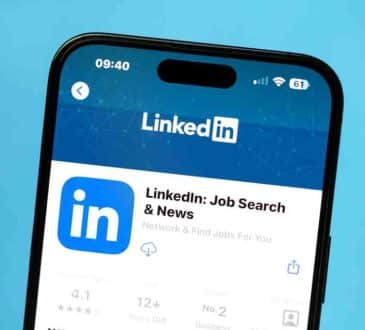6 Strategic Communication Skills Every CEO and New Hire Needs

Whether you’re a CEO of a start-up or a seasoned executive with a team of thousands, you have one thing in common: the need for exceptional communication skills. These strategic communication skills are a must to close sales, negotiate new contracts with suppliers and partners, attract top talent as you grow, and build loyalty among customers and employees.
Solopreneurs sink or swim on their personal communication skills. CEOs of larger organizations put their fate in the hands of a few strategic hires and their leadership communication skills. Whichever the situation, your ability to communicate vision, initiatives, ideas, strategy, or services to customers, partners, employees, or investors at all levels in different settings will determine your long-term success.
Think and Communicate Strategically
As a leader, you either clarify or confuse, motivate or demoralize, engage or enrage employees. And employees, in return, will either give 110 percent of their loyalty, support, and skill to accomplish your mission––or disengage, divert your focus, and drain your energy in dealing with them.
Fewer and fewer professionals come to their position with all the leadership communication skills they need to master the job. In a recent Wall Street Journal survey of nearly 900 executives, 92 percent said soft skills were equally or more important than technical skills. But 89 percent reported that they had a very or somewhat difficult time finding people with those attributes. And they say it’s a problem spanning all age groups and experience levels.
No matter your industry or whether you’re in marketing, sales, operations, finance, research, IT, legal, or human resources, tactical thinkers communicate directives to get things done. They decide who does what when. Unfortunately, the tactical things that get done may not always be the wisest things or the most profitable things with long-term payoff. Tactical thinking is critical—but common.
On the other hand, strategic thinkers stand out from the crowd. Big-picture thinking uniquely positions you as the resource for focus, problem analysis, and innovation.
But strategic thinking puts points on the scoreboard only if you can communicate your thinking clearly. And the more respect your thinking earns—that is, the more visibility you get—the more often you’ll be called on to communicate your thinking up, down, across and outside your organization.
To communicate strategically to fulfill your most essential responsibilities as a leader, focus on these six distinct leadership communication skills:
Developing a Team
Most organizations have at least a phrase in their mission statement about the importance of people and how valuable this “talent” asset is. But primarily the executive team depends on individual managers to develop their own staff members to their fullest potential. That means attracting the best people, maintaining high morale, managing the workflow appropriately, and coaching employees. The higher you climb in the organization, the more people you’ll need to keep pleasantly engaged.
Even if you’re a solo CEO running a nonprofit with no employees or leading an industry association with an all-volunteer team, the same principle applies. If they leave, you lose.
Conversing One-on-One With Intent to Connect Strategically
Interacting on a personal level starts with clear communication standards that everyone understands: About expected response times. About expected feedback. About truth-telling. About directness on controversial issues. About being approachable for new ideas. About accountability for errors or poor judgment.
Another, equally important aspect involves expanding your personal network and keeping it active—both inside and outside the organization with suppliers, customers, and competitors. Make sure your network portfolio continues to grow in value. Who can you call at 7:00 a.m. for advice or a referral? If very few, then your network value has declined, not increased, in value.
Negotiating to Find Mutual Opportunities of Value
As a leader, you’ll find yourself negotiating daily: pricing structures, due dates, supplier rates, vacation and work schedules, project assignments, travel plans, employee conflicts, and solutions to problems. As an effective negotiator, you’ll determine your goals, value, and walk-away point before you begin serious discussions. While unsuccessful negotiators focus on disagreements, more successful negotiators look for areas of alignment.
The relationship developed during the negotiation discussions matters most of all. Those most successful as negotiators approach the process with this principle in mind: Always negotiate the first deal with the second in mind. That is, demonstrate integrity so as to develop trust and goodwill to keep the relationship intact.
According to analysts, mergers that fail often have as their root cause distrust created in the relationship during upfront negotiations.
Speaking Persuasively to Win Minds and Hearts
Being an engaging speaker has become a fundamental, not a nice-to-have, leadership skill. Work toward increasing your personal presence as a first step (body language, voice, the ability to express yourself extemporaneously with clarity and confidence). With high-stakes presentations, plan carefully to dump your data to a relevant narrative storyline. Generate memorable analogies and soundbites. Engage your listeners with great stories. Certainly, you’ll need to provide logically reasons to build your case. But never depend on logic alone to move people to action.
Writing Clearly, Concisely, and Compellingly
Clear writing reflects clear thinking. Nothing will propel you to a customer’s executive suite faster than a well-written recommendation on a high-risk, high-payoff project. Imagine yourself facing a venture capital firm, asking for funding to underwrite a project. What questions would they pose? Anticipate those questions as you provide answers to support your recommendation. Think deeply; write lean.
Leading Productive Meetings
Plug power into your agenda. Rather than fill an agenda with vague topics, turn those topics into laser-focused questions. Questions will lead immediately to targeted discussions with an intended outcome. Then learn to facilitate well so you get maximum participation from all involved in the shortest timeframe. Eliminate the typical timewasters, and be known for the meeting results you deliver. Know how much your typical meetings cost (salary hours invested) and calculate your meeting’s ROI.
Whatever your business plans, these six leadership communication skills will open doors at the highest level at your customers’ organizations. Make it your goal to fill your top positions with only those employees who have mastered all six of these strategic communication essentials.
Have you read?
Dianna Booher‘s latest: Communicate Like a Leader: Connecting Strategically to Coach, Inspire, and Get Things Done.
Add CEOWORLD magazine to your Google News feed.
Follow CEOWORLD magazine headlines on: Google News, LinkedIn, Twitter, and Facebook.
Copyright 2024 The CEOWORLD magazine. All rights reserved. This material (and any extract from it) must not be copied, redistributed or placed on any website, without CEOWORLD magazine' prior written consent. For media queries, please contact: info@ceoworld.biz











